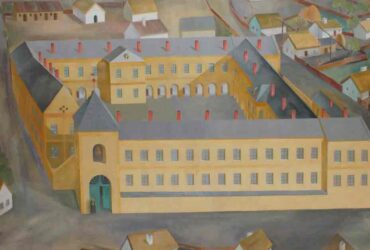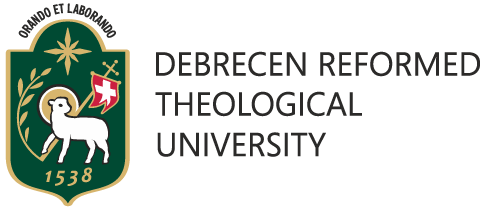
The Debrecen Reformed Theological University (DRTU) as a member institution of the Debrecen Reformed College (founded in 1538) has been one of the influential centres of theological sciences and ecclesiastic training of intellectuals in Hungary.
Debrecen turned the ecclesiastic centre of the Tiszántúl (the region east of the river Tisza) which became protestant by the middle of the 16th century. At the time minister and teacher training in the region was carried out by the school of the city of Debrecen. Thanks to its professors with experience from Western European universities, and an extended school network in the country and the protection, the rich support from the city of Debrecen and from the princes of Transylvania the Reformed College of Debrecen soon became an institution of national importance.
Known as the school of the poor, it provided education for the lower layers of society and supported their social advance. Besides notable scientists and science organizers, several poets, writers and philosophers well known in Hungarian cultural history are among the alumni of the College.
In 1820 academic minister training in the Reformed College of Debrecen – with a gradual increase of the number of departments in the institution – was extended to five years: the two years of theological professional training followed a three-year-training in basic philosophy.
Following the antecedents of the 1850s the maintainer of the College, the Tiszántúl Reformed Church District decided to set up a separate academy of law under the leadership of a dean with a separate set of teachers in 1892. The theological and law academy were operated side by side until the foundation of a state university in 1912.
Teacher training in College was separated from minister training as early as 1855. It continued training until a new state run institution was established in 1959. The seperate teacher training institution received college rank in 1976. In 1990 the teacher training college took the name of the poet of the Hungarian National Anthem, Ferenc Kölcsey, who was a former student of the Reformed College in the 19th century. The teacher’s training college came back under the maintenance of the Tiszántúl Reformed Church District in 1992 and it was integrated into the Debrecen Reformed Theological University in September 2011. Teacher training was thus returned into the Reformed College of Debrecen.
The state university (founded in Debrecen in 1912; today called: the University of Debrecen) was organized from the academic departments of the Reformed College and it was located in the buildings of the Reformed College until the main building of the state university was completed in 1932. The Academy of Theology was formed into a faculty of the new state university and was moved from the Reformed College into the new building of the state university in 1932. Simultaneously with the establishment of the Faculty of Theology the Church District organized a minister training institute in the College that carried out the practical training of future ministers and helped their church socialization as well.
In 1949 the Faculty of Reformed Theology was moved back into the building of the Reformed College due to pressure from the communist regime. In 1950 it was separated from the University of Debrecen and became a separate, church maintained institution again named Debrecen Reformed Theological Academy. The Academy – together with its right for a doctoral school – remained a higher educational institution with university rank. Since 1993 it has been operating as a state recognised and accredited university maintained by the Church under the name Debrecen Reformed Theological University (DRTU). Our university was a founding member of the Debrecen Universitas Association and is still an associated institution of the University of Debrecen having close cooperation and joint training programmes with it.
The DRTU currently has two institutes and seventeen departments. Our university apart from its undivided, basic (BA), master (MA) and PhD programmes carries out the training of would-be Reformed ministers, church employees, teachers and other secular intellectuals. The institution currently has 50 full time teachers and around 600 students.
